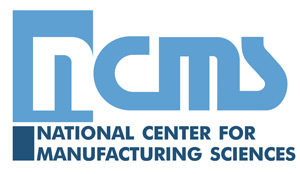Project Announcement: Advanced Mobile Universal Electrical Tester (AMUET) for Maintenance and Sustainment
The issue of how to develop a reliable, cost-effective solution for trouble-shooting electrical systems continues to plague the aircraft industry. A good portion of aircraft maintenance costs are attributed to finding anomalies associated with complex electrical systems. Human error also enters the equation, particularly when traditional hand-held meters are used to isolate an electrical system issue. It could take hours to find and isolate a defective component, wire or wire connector. While there is sophisticated ATE (Automatic Test Equipment) available to help isolate an anomaly, their high costs (hardware and software), size, weight, portability, and ergonomic issue with handling heavy cabling make them less than desirable. NAVAIR does not have a wireless test set capable of detecting a 50ns intermittent as defined in MIL-PRF-3251. This project will demonstrate a wireless intermittent capability to the Navy.
The project will demonstrate through an extended period (12-18 months) that the AMUET technology, previously successfully demonstrated at Air Force depot level, will satisfy the needs of the Navy Depot level testing. Features of AMUET making it an ideal solution include:
- Portable, agile system. The entire system including cabling and connectors, central control (residing on an approved NAVAIR laptop), and TBUs (Test Bed Units) for a typical electrical subsystem weighs less than 30 pounds and fits into a standard ruggedized pelican case the size of an overhead carryon.
- Can be used wirelessly or wired.
- Test Program Sets (TPSs) can be developed at the work station using AMUET’s self-learning capability.
- Standardized cabling and connectors.
- Statistical software included (track performance by tail number and aircraft type) capable of integrating with Information Technology and Enterprise Resource Planning systems supporting CBM+ (Condition Based Maintenance) assuming cybersecurity approval.
Those interested in participating in this initiative should contact Dana Ellis by July 31, 2017. We encourage participation of Disadvantaged Business Enterprises (DBEs), including Minority Business Enterprises (MBEs) and Women’s Business Enterprises (WBEs).
